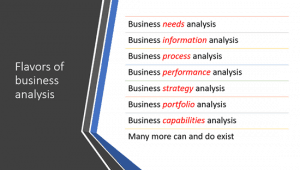Who should the Business Analysts report to | Adaptive US
This is a very common question from many of our training and consulting clients. Junior business analysts usually don't have conflict when reporting to project managers. This question seems especially trouble Senior Business Analysts who have spent 10 to 15 years of their work career within the organization.
So, who should the Business Analysts ideally report to?
This confusion arises from the fact that business analysis of an activity can be quite varied with very distinct objectives, skills, and competencies.
 Let’s look at a definition (which I like) of business analysis:
Let’s look at a definition (which I like) of business analysis:
As per Wikipedia, “Business analysis is a research discipline of identifying business needs and determining solutions to business problems. Solutions often include a software-systems development component, but may also consist of process improvement, organizational change or strategic planning and policy development.”
Now, it is quite clear that there can be many flavors of business analysis and the tasks performed by business analysts will differ wildly.

In the above diagram, I have shown a variety of business analysis flavors that can be performed by Business Analysts.
Depending on the kind of business analysis activity one is performing, the ideal reporting manager should be different.
If you are working in developing solution requirements, it makes sense for you to work with your project/product manager as your reporting leader.
But if you are working as a product manager, product owner, process improvement champion, or developing strategy analysis, the best person can be respective Department Head or even your CEO.
In case you are being asked to report to a wrong person, understand the role that you are playing. It may be possible that you are not playing a role that is appropriate to your competency profile.
It is no way to demean requirements engineering as a task. It is a very critical role in the project's success.
If you happen to be a senior requirements engineer and you want to continue in the same role, you should be in a position to mentor and guide other requirements engineers. You ideally can be part of a business analysis center of excellence to provide better value to your organization and to yourself.
I would invite business analysts to share their experiences and challenges in managing their reporting relationships.
You May Also Like
These Related Stories

5 Leadership Traits of Great Business Analysts - Adaptive US

BA estimation - Theory vs. Practice | Free Est. Template



No Comments Yet
Let us know what you think